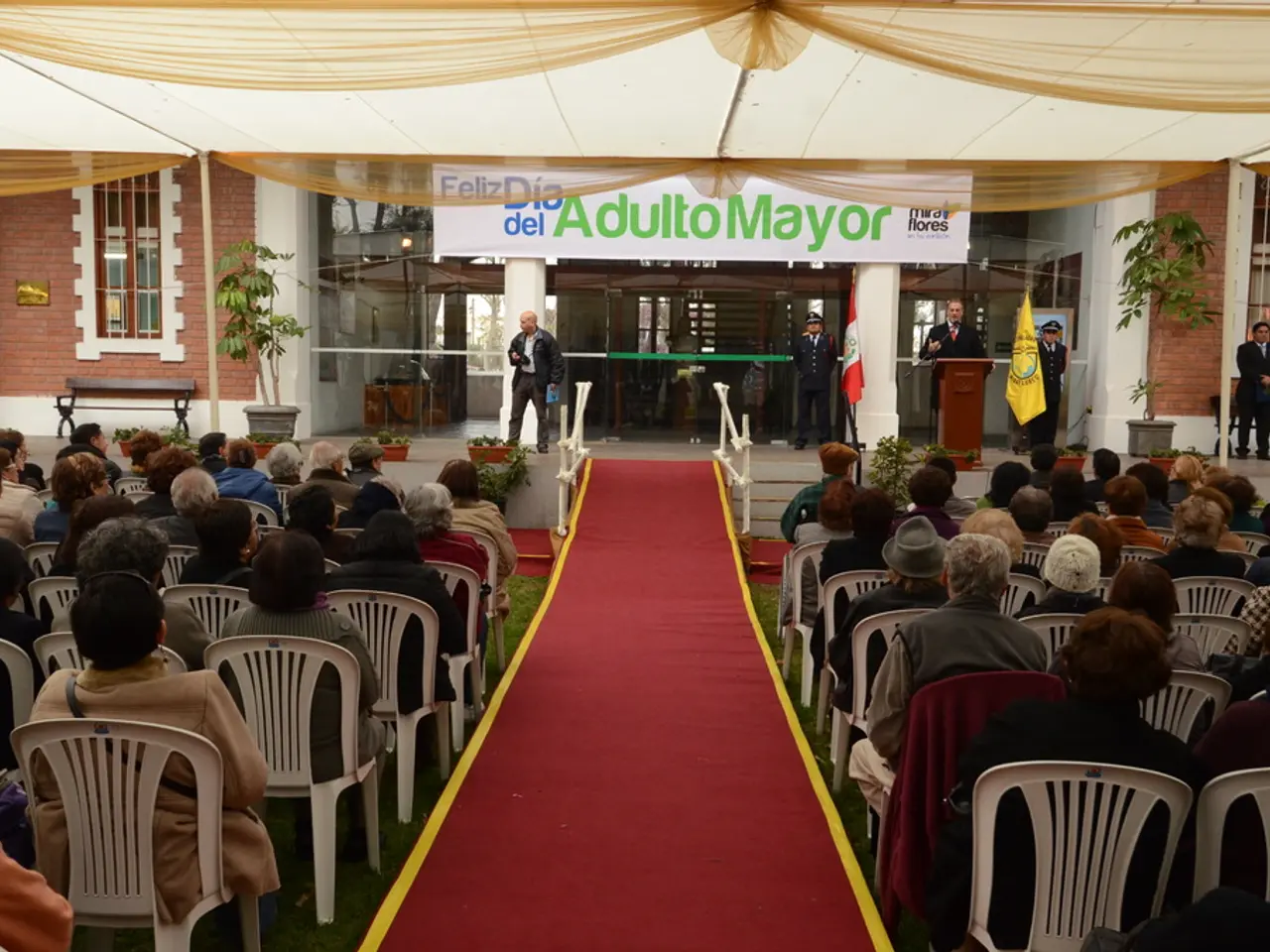Challenges and demands city mayors encounter
In a recent presentation at the Württembergische Gemeinde-Versicherung (WGV), the book "Challenge of the Mayor's Office - Municipal Leadership between Tradition and Transformation" was discussed by practitioners and association representatives. The book, authored by Paul Witt, former rector of the Kehler Administrative Academy, and Mathis Dippon, political and administrative scientist from the Vienna office of the "Innovation in Politics Institute," addresses various developments in the role of mayors, including the impact of social media on mayors' interactions with citizens.
One of the key topics of discussion was the role of women in office. Hannelore Reinbold-Mench, the mayor of Freiamt (Circle of Emmendingen), expressed her suspicion that women may have a cooler view of the position of mayor compared to male colleagues due to the unattractive salary scale and additional representative tasks. She also noted that women can combine family and career in large authorities with regular working hours for similar money, making the mayor's office less attractive for women.
The book suggests that mayors face challenges in balancing tradition and transformation in their roles. According to Mathis Dippon, the demographic change shows in the lack of qualification of mayoral candidates. Steffen Jäger, president of the association of municipalities, discussed the limited work-life balance that can be organized in the communal top position. However, the book does not provide specific details about how mayors can balance tradition and transformation in their roles.
Ralf Broß, city council president of Stuttgart and former mayor of Rottweil for 13 years, spoke about "armchair democracy" as an example of citizen proximity. He also emphasized that being a mayor can offer a better work-life balance, as he reported seeing his children more often when he was still mayor.
At the event, audience questions revolved around the (lack of) qualification of mayoral candidates. According to Reinbold-Mench, citizens do not vote for the loudest, but for the qualified candidates. Hannelore Reinbold-Mench, who was elected mayor of the Black Forest community of Freiamt for the fourth time in May, did not provide specific details about her perspective on the attractiveness of the mayoral office for women.
The book "Challenge of the Mayor's Office - Municipal Leadership between Tradition and Transformation" has 29 contributions and is published by Boorberg Verlag, with approximately 300 pages. Ralf Broß and Steffen Jäger had a disagreement about whether a communal territorial reform should be part of a state reform. Broß brought larger municipalities into play, while Jäger saw this as subordinate to the state reform.
In conclusion, the presentation of the book sparked a lively discussion about the challenges faced by mayors, the role of women in office, and the work-life balance in the communal top position. The book serves as a valuable resource for understanding these issues and finding solutions that are ultimately accepted by the electorate.








